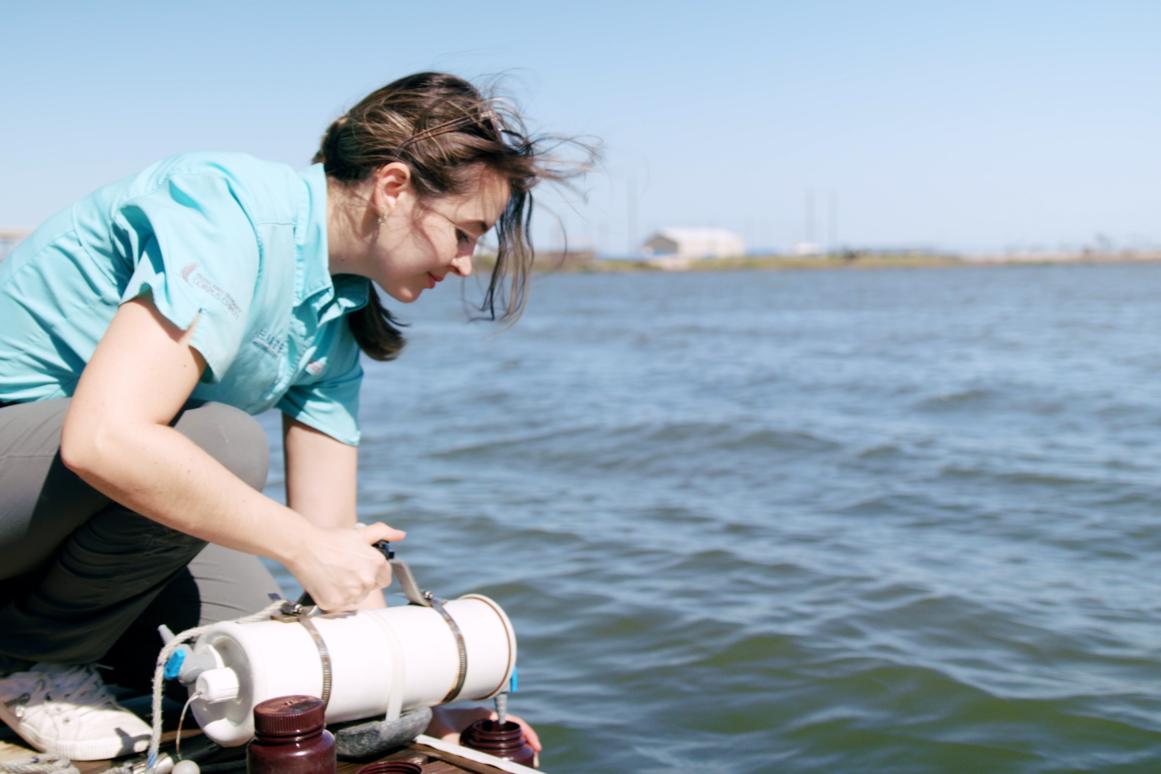Former HRI Student Publishes Study on Coastal Canal Water Quality

Former Harte Research Institute for Gulf of Mexico Studies (HRI) at Texas A&M University-Corpus Christi master’s student, Jordana Cutajar '22, recently published her in-depth look at water quality in coastal residential canals in the Texas Coastal Bend. A student under the Coastal Ecosystem Processes Lab lead by Dr. Michael Wetz, Cutajar’s data showed that canal areas have generally poor water quality, including frequent algal blooms and prolonged low oxygen conditions.
As urbanization increases, many regions around the globe are seeing growth in the number of residential canal systems along their coastlines but so far there has been little research on the condition of these systems. Because these types of canals are often shallow, are susceptible to urban runoff, and have limited flushing, they are uniquely positioned to experience water quality degradation.
In her study, Cutajar examined water quality over the course of one year at three sites in a canal system on North Padre Island, taking samples once per month during the fall and winter months, and twice per month during the spring and summer. Ultimately, her findings indicated that artificial residential canal systems have distinct and less desirous water quality conditions compared to adjacent non-canal waterbodies.
“Jordana’s work is really insightful because it shows that we are potentially replacing higher quality habitats such as wetlands or tidal flats with canal waterbodies that are of lower quality because of the poor water quality”, said Wetz. “Her work highlights a need for better engineering design of future canals to increase flushing and for communities to incorporate practices that reduce pollutant runoff to existing canals to improve water quality.”
The Coastal Ecosystem Processes research program at HRI works to provide a sound scientific basis for stakeholder-led efforts aimed at solving coastal water quality challenges.
